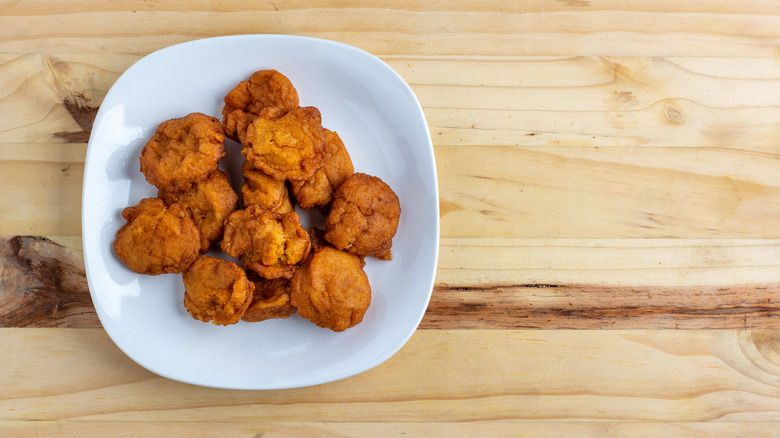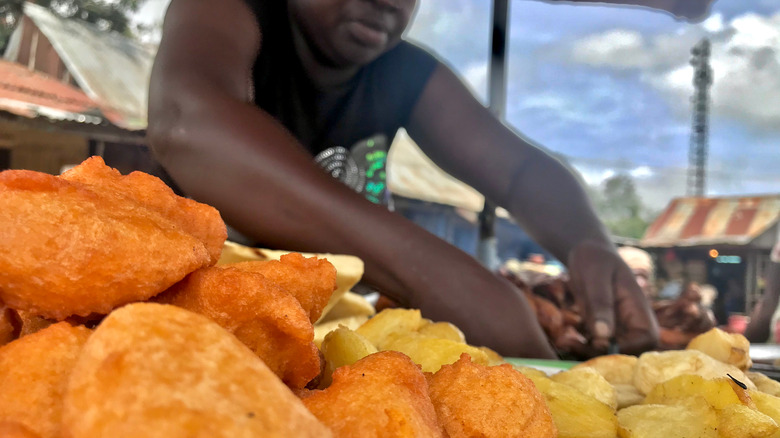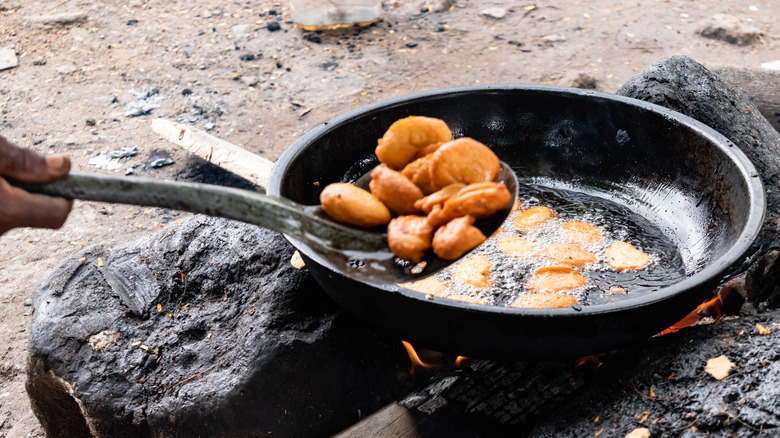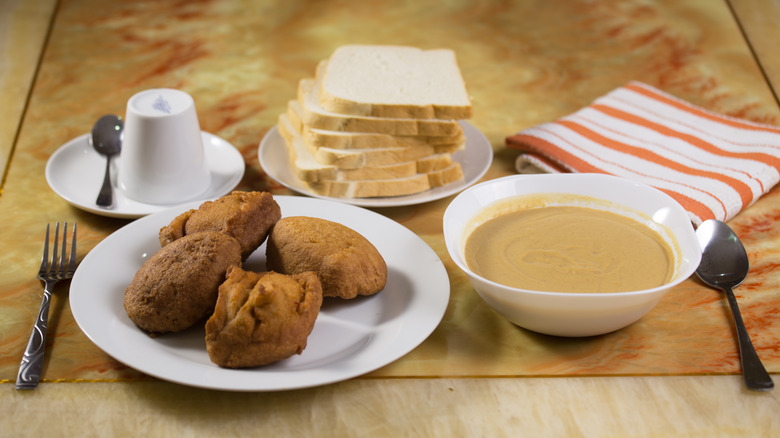Akara: The Nigerian Breakfast Fritter You Should Know About
Nigeria, in our humble opinion, is an internationally underrated food capitol. Bustling Lagos, Nigeria's largest city, is lively night and day with street food vendors around every corner (via Eat Your World). Suya, a nutty and spicy grilled steak, can be found on smokey sidewalks and always draws a crowd. Puff Puffs, a variation of the French beignet, are another unmissable delicacy. This sweet or savory treat is a deep-fried dough ball that can be served with milk or pepper and onions, according to Eat Your World. In other cities, like the beautiful Enugu, you can find Abacha, or African salad. This dish, which incorporates dried cassava and fish, has spread in popularity, but it originated with the people of Igbo (via All Nigerian Foods).
Nigerian food is as diverse as their people groups, and Nigeria is an extremely ethnically diverse country. In fact, there are over 250 ethnic groups in the region, according to the University of Birmingham. And, their food, much of which is spicy and deeply-flavored (via Keobi), reflects these various cultures and religions (via Food by Country).
Even their breakfast dishes pack a punch. And akara, deep-fried breakfast fritters with a seasoned batter, may be one of the most delicious.
History of akara
It is difficult to talk about African cuisines without understanding how colonization and the slave trade impacted the continent's countries and cultures. For Nigeria, prior to any European powers arriving, their main staples included rice, millet, and lentils. When the Portuguese arrived in the 15th century, they established trade with the nation, which introduced cassava, and later, when the British colonized the land, Europeans made staples of beans and maize (via Food by Country).
Akara, a dish made from black-eyed peas, originated with the Yoruba tribe, a large ethnic group in the Southwest part of the country, according to Britannica. But, the dish has since spread throughout West Africa and is also popular in Brazil, where it is called acarajé. The name is made up of two Yorubian words, "akara" and "jé," which means "to eat," according to Eat Drink Lagos. It arrived centuries ago when slaves were brought to Brazil from Nigeria via the transatlantic slave trade (via Serious Eats).
How akara is made
Akara is a simple dish that can come in all shapes and sizes. Some are made big and dense, while others are light and fluffy. But, the crispy exterior and tender filling make it delicious either way (via Serious Eats).
The site's recipe calls for black-eyed peas to be soaked in cold water for between 15 and 60 minutes. This loosens the pea's skin and prepares them to be peeled. The quickest way to "peel" the peas is in a food processor. When lightly pulsed and poured into a bowl for about 30 minutes, the skins will float to the top. Once the skins are removed, they are soaked again in water for 10 minutes to soften. When finished, the peas are drained and added to a blender with other ingredients.
Along with water, red onion, habanero pepper, and salt are blended together. Sometimes crayfish, bell peppers, or bouillon powder are added as well, such as in Chef Lola's Kitchen's recipe. Once blended, a thick paste is created, which will need to be whisked in another bowl. Once the batter is fluffy, it is ready to fry (Serious Eats).
Vegetable oil is typically used to fry the batter, creating its iconic golden crust.
How to eat Akara
For many Nigerians, akara is part of a Saturday morning breakfast. According to Eat Drink Lagos, the fried dish is often eaten with sugar, pap, and milk. Pap is a Nigerian breakfast pudding made from fermented corn (via Google Arts & Culture). A hot beverage, like coffee or tea, will also pair nicely with the meal (via Serious Eats). It is also commonly served alongside slices of white bread. It can be sandwiched between the bread to make an akara "burger," and the bread should be chewy and soft to ensure the fritter doesn't fall out (via Delishably).
But, they don't have to just be eaten for breakfast. According to Chef Lola's Kitchen, they are also perfect eaten alone as an evening snack or served as an appetizer.
Whether you make your akara at home or grab a few fresh from a street vendor, this versatile dish is sure to warm you up and encourage you to explore more of Nigeria's diverse dishes.



